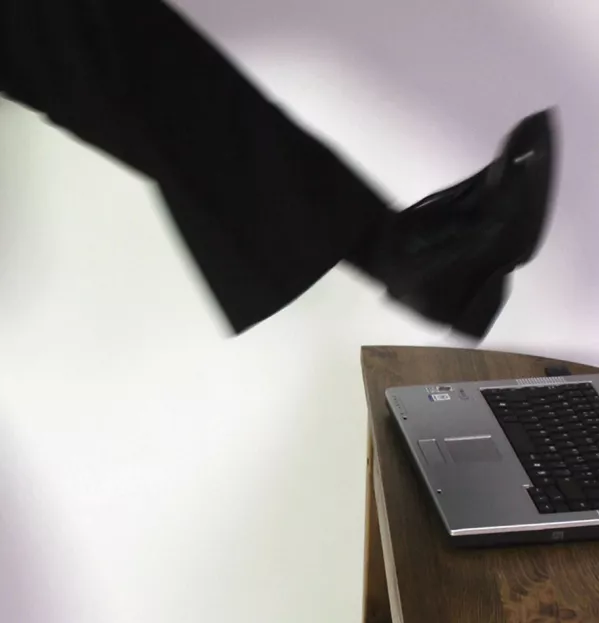How do you deal with a thief? I was at lunch the other week when I received a video call from my good friend Oscar (aged 4), who wanted my expert advice on that very question. After a serious discussion, we settled on a solution he was happy with: kick the thief up the bum and out the house.
I’ve been living my life through video calls such as that one for the past few months. They can be incredibly positive, energising experiences. But such instant connections have had their downsides, too.
The barrier between work and home, in particular, has become less tangible. Like many, I don’t have the luxury of a whole room for an office, and my relaxation space has also become my place of work. I know that’s the same for many teachers: their oasis away from the madness of school has suddenly transformed into their classroom. For us all, it’s a lot harder to step away from emails and online tasks when the reminder that you’ve left something unfinished is less than 10 feet away from where you’re trying to watch your latest Netflix obsession (Somebody Feed Phil, if you’re asking).
The ability of technology to ensure you’re always reachable is not a new phenomenon - certainly not for teachers, who are more than used to emails coming in at all times of the day from senior leaders, parents and students. But what this pandemic has done is make that availability seem more relentless and less escapable than ever before.
So as our social restrictions increasingly lift and the summer holidays kick off, it may be tempting - and I know I’ve been tempted - to eschew technology altogether for a few weeks. But is a digital detox really worth it? Brittany Davidson, research associate at the University of Bristol, reckons not.
She points out that a lot of the work promoting detoxes ignores the benefits online connections can bring, arguing that removing those connections risks a negative impact on loneliness and stress. “I don’t think it’s a very sensible way to go about it,” she concludes.
It’s not just your own side of the connection you need to think about, either. Many families have found themselves shielding over the past months. For those families, video calls are not just a nice way of keeping in touch: they’re a lifeline. When your world has abruptly shrunk to the four walls you live within, you cannot underestimate the power technology has to make you feel less isolated and to remind you that there is a world keen for you to rejoin it once this, too, has passed. It’s important to note, too, that the impact of shielding will be felt long after the restrictions on movement end. The mental shift required to see leaving the house as a safe activity, rather than a death sentence for you or a loved one, is enormous. Some might need a technological lifeline a while longer yet.
This is not to give technology a pass on potential negative impacts. Rather, it is to suggest that going cold turkey may not be the best solution - for you or for others. Schools need to be aware of ongoing needs in families before demanding any rules that restrict communication are applied universally. As Davidson says, find a healthy balance that works for you - whether that’s a cut-off time after which you won’t check your emails, or having a day completely free from technological interruptions. The key, it seems, is being aware of your consumption.
And if you find your online life is stealing too much time from your offline one, you can always take heed of my good friend Oscar and treat it like you would any other thief: kick it up the bum and out the house. Unlike other thieves, though, remember to let it back in again…when you’re ready.
@Sarah_Cunnane
This article originally appeared in the 17 July 2020 issue under the headline “Sure, technology can rob us of our time - but it gives back, too”

